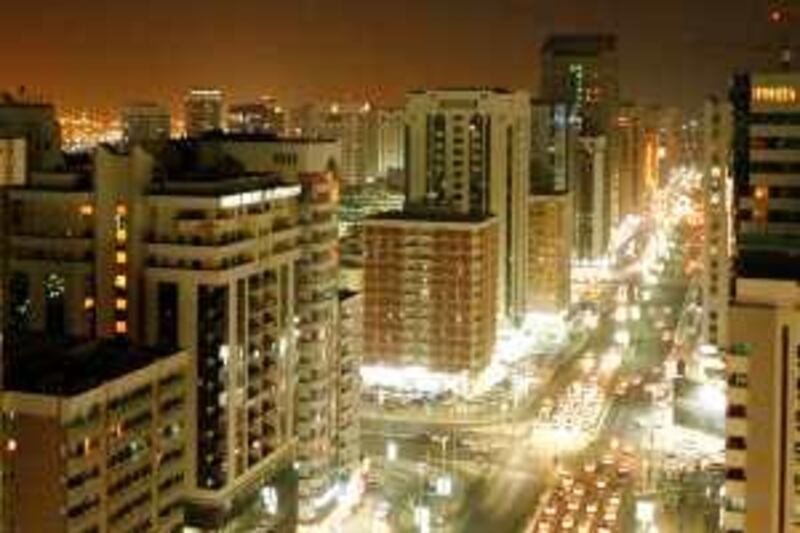Abu Dhabi Water and Electricity Authority (ADWEA) has gained more breathing space to meet rocketing power demand in the short term because of delays to major residential and industrial projects, an official forecast showed yesterday. But the utility will still need to double generating capacity before the emirate's first nuclear reactor comes online in seven years.
By 2012, peak power consumption in summer in the emirate will be 3,482 megawatts higher than last year, according to a forecast by the Abu Dhabi Water and Electricity Company (ADWEC), an ADWEA subsidiary. The estimated growth is 36 per cent lower than a forecast by ADWEC last year, in which it saw consumption rising to 5,451mw by 2012. The difference is explained by slower than expected growth in power consumption by industry, major residential projects and the Abu Dhabi National Oil Company (ADNOC).
But in the longer term, the difference in forecasts narrows, with both predicting consumption at almost 20,000mw by 2020. Since ADWEA was reorganised in 1998, it has announced new power plants to be built on an almost yearly basis and would continue to build large fossil fuel-based power stations to keep up with increasing demand, said Abdulla Al Nuaimi, the director of privatisation directorate at ADWEA.
"The demand grows very fast - it's growing around 10 to 11 per cent compared to last year," he said at a MEED business conference in the capital. "In the near term, for us at ADWEA to meet the demand, we cannot depend on the renewables or other sources of energy. "We will continue to meet our demand through the classic way." Demand for ADWEA's power increased 11 per cent last year in spite of the financial crisis, official figures showed, driven in large part by an increase in power exports to Sharjah and other parts of the UAE.
The rate of growth outstripped the Dubai Electricity and Water Authority, which saw demand increase 6 per cent, and the UAE as whole, which experienced a 7 per cent increase, said Keith Miller, the director of the planning and studies directorate at ADWEC. ADWEA has announced plans to build a third power plant at Shuweihat, on the coast of Al Gharbia, west of Ruwais. The utility would select a partner company to own 40 per cent of the plant in the third quarter and would complete construction by 2013, Mr Al Nuaimi said. Fourteen firms have been pre-qualified to bid for the project.
The power plant has received an allocation of natural gas fuel from ADNOC, Mr Al Nuaimi said, refuting suggestions by some analysts that the emirate's next power plant would not be able to procure gas and would be forced to burn oil-based fuel. But a shortage of gas remains a challenge acknowledged by the Abu Dhabi Government. ADNOC plans investments of more than US$20 billion (Dh73.46bn) to bring new gas to market in the next five years, but most forecasts still showed supplies falling short of demand.
The Government's awarding of a $20bn contract to a consortium of Korean companies to build four reactors in the emirate was premised on the gas shortage. But the first reactor won't come online until 2017, by which time power demand will have jumped to a predicted total of 21,075mw. "Whatever they say is needed, we will supply it," Mr Al Nuaimi said. cstanton@thenational.ae





